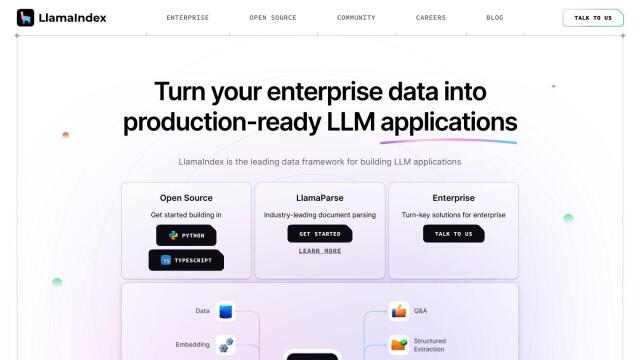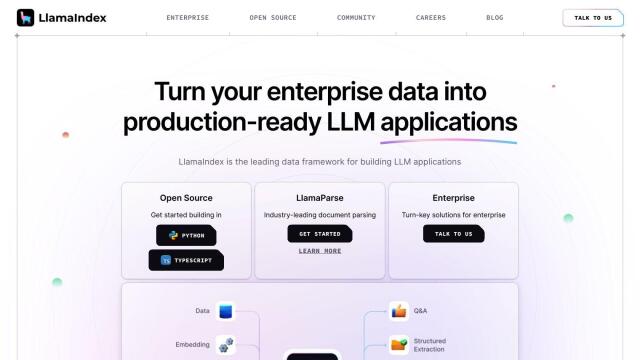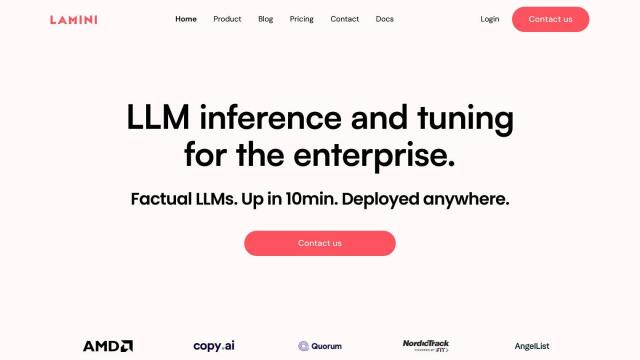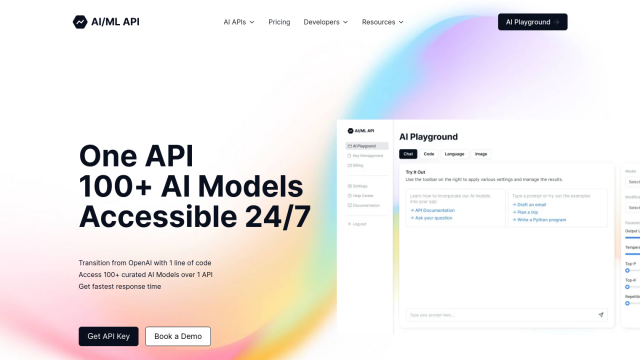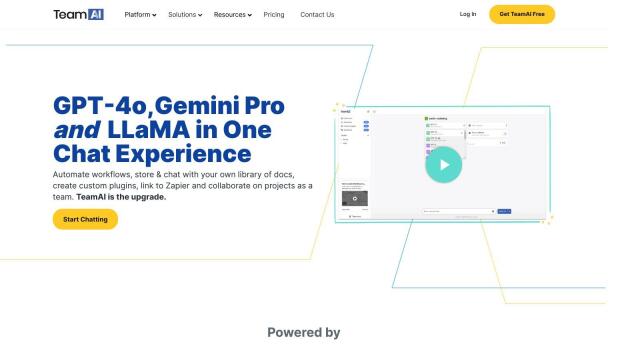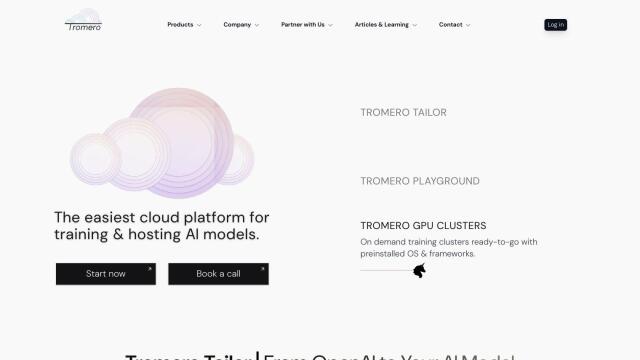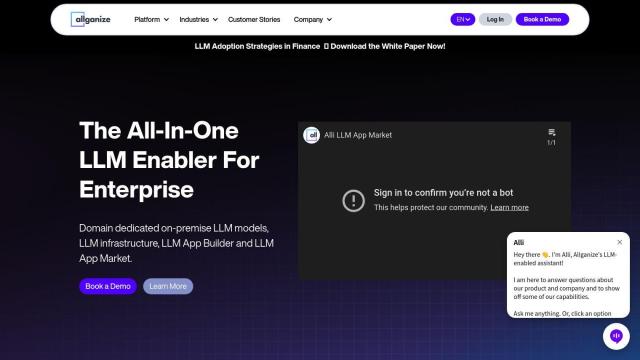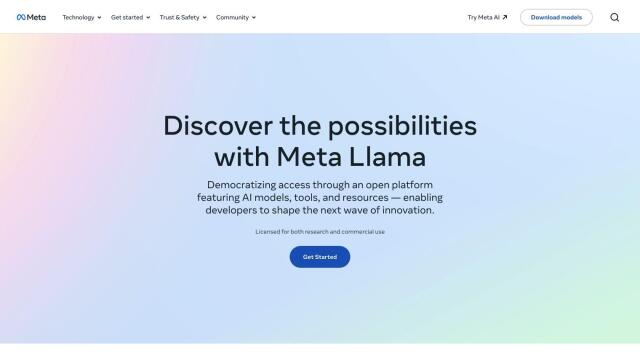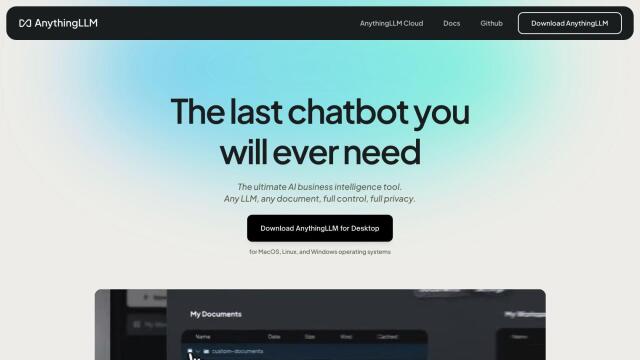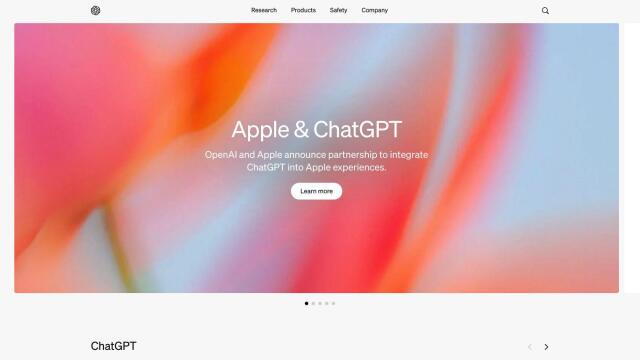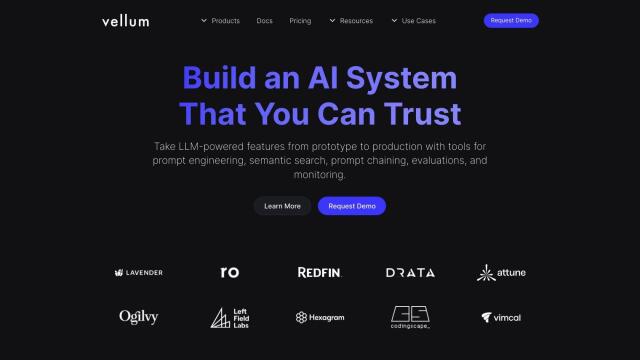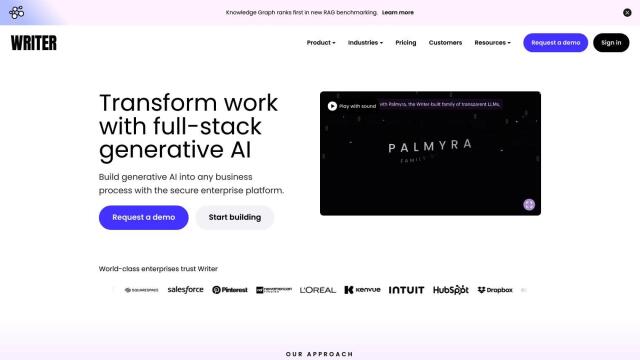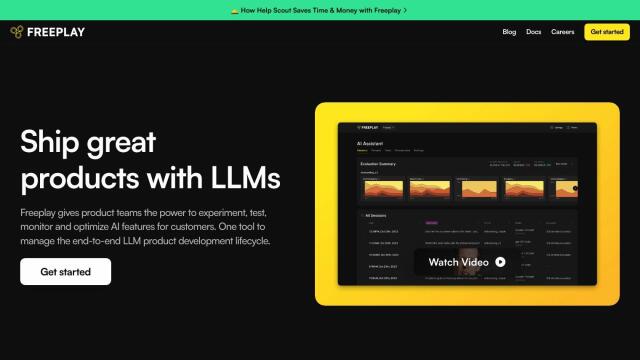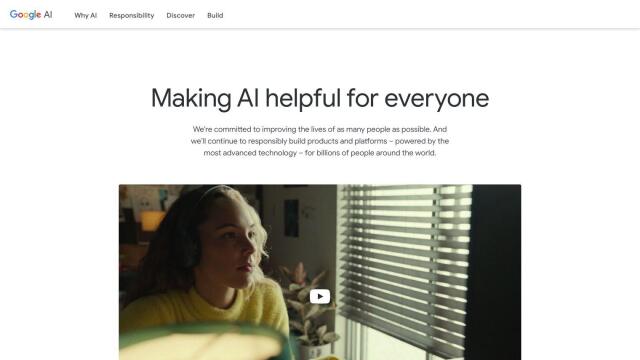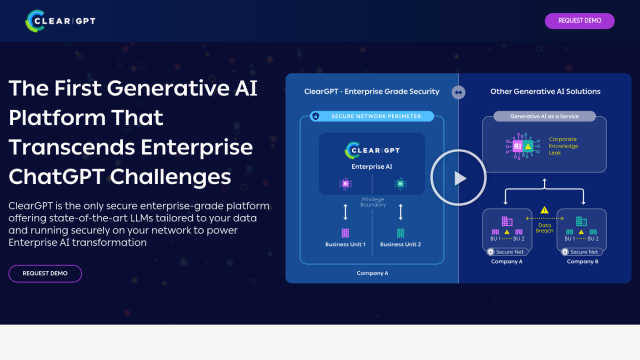Question: How can I integrate leading AI models like GPT-4 and Llama-v2 into my products and processes?

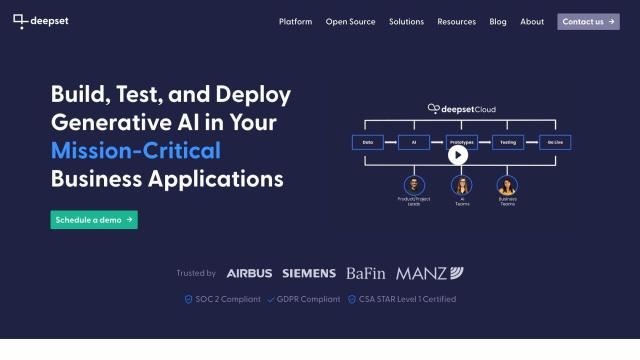
deepset
If you want to build your own products and services using AI models like GPT-4 and Llama-v2, Deepset has a full suite of tools to get you there. Its cloud-based service and open-source Haystack framework let you prototype, fine-tune and deploy models. It comes with pre-built templates for a variety of use cases like Retrieval Augmented Generation, Conversational BI and Vector-Based Search, so you can get started with category-defining AI applications more easily.


Klu
Another powerful option is Klu, which streamlines generative AI app development and optimization. It supports several large language models, including GPT-4 and LLaMA-2, and includes features like automated prompt engineering, version control and performance monitoring. Klu's service is designed to help AI engineers and teams work more efficiently by letting them iterate and optimize models based on model performance and user feedback.

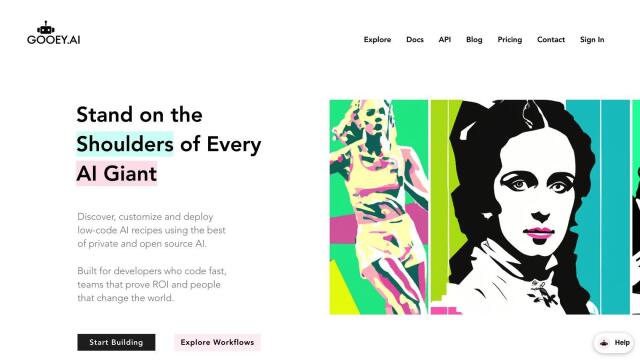
Gooey
For a low-code approach, Gooey offers a single interface to many AI models, including GPT-4 and LLaMA-2. It's got a unified billing account, low-code interface and integration with services like Slack and WhatsApp. Gooey's tiered pricing and hot-swappable AI models mean you can use it to build and deploy AI apps in different domains without worrying about high costs.


Abacus.AI
Abacus.AI is another general-purpose platform for developers who want to build and run their own AI agents and systems at large scale. It can be used to fine-tune LLMs for tasks like chatbots and predictive systems. Abacus.AI's enterprise-grade AI agents come with high availability, governance and compliance features, which makes it a good choice for more complex automation and real-time forecasting.


